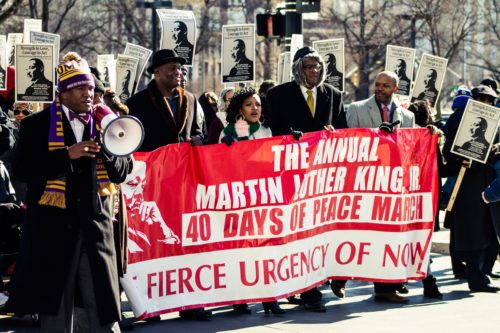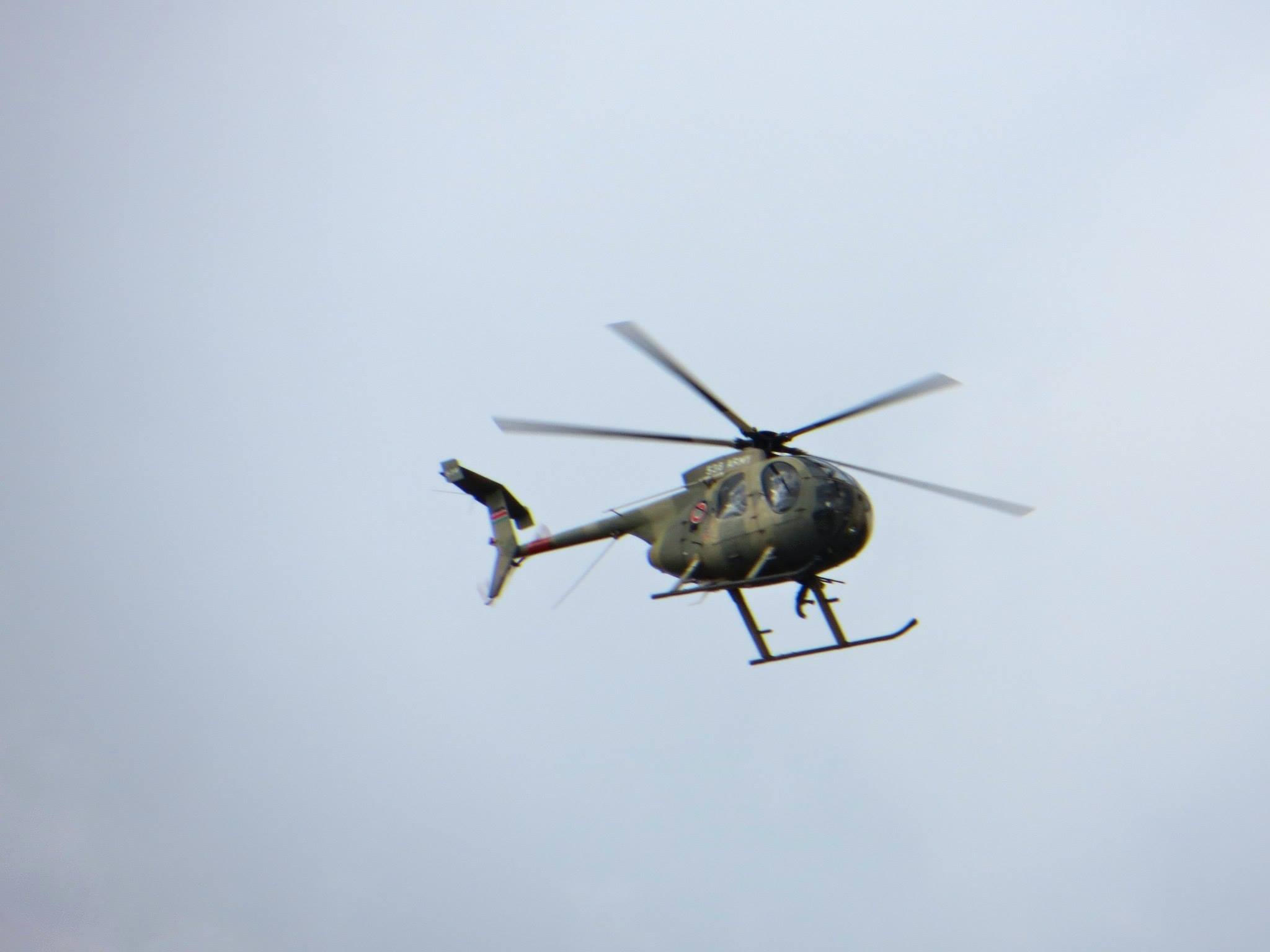Guest post by Megan A. Stewart for Denver Dialogues
White supremacists have killed 18 Americans in terrorist attacks since 2017. In January of 2018, one white supremacist was arrested for terrorism. While the violent presence of white supremacists is increasingly felt, at least one White Supremacist group is turning to alternative measures to increase its presence in certain rural communities across the United States.
Given the obviously limited appeal of its ideology, to drum up supporters the Traditionalist Worker Party (TWP) has turned to a surprising source of inspiration: “Hamas, Hezbollah, [and] traditionally, the Irish Republican movement.” Specifically, Neo-Nazis have said their goal is to build support across rural Appalachian towns through social service provision, much like Hezbollah and Hamas have used governance to move towards achieving their political goals in Lebanon and Palestine, respectively.
The turn to Hezbollah and Hamas, Islamist organizations formally designated as foreign terrorist groups by the U.S. State Department, may seem unusual. At first blush, apart from shared anti-Semitism the two organizations seem to share little. Neo-Nazi white supremacist organizations are neither supportive of religious diversity and Muslims, nor do Neo-Nazis support the implementation of proscriptions of how to govern and behave based on Islamist thought.
Though laughably far from actually offering social services anywhere close to the quality and degree of Hezbollah and Hamas, controlling territory, or contesting a state seriously as an insurgent organization, the TWP in the U.S. has identified governance and social service provision as a key strategy of political contention. While the TWP may look to the former rebel Islamist organizations for unlikely inspiration, Islamists like Hezbollah’s leaders also turned to an historical, equally unlikely source of inspiration. In the shaping of its governance that the TWP in the U.S. today so admire, Islamists, including Hezbollah, have learned from, adopted and adapted organizational structures of communist and leftist rebel organizations.
In my working book manuscript, Governing for Revolution, I argue that although rebel governance has existed prior to the Chinese Civil War (the Confederate States being one obvious case that predates Mao by over half a century), the People’s Liberation Army under the guidance of Mao built a model of rebel governance that would serve as a touchstone and source of strategy for many rebel groups throughout the 20th and into the 21st centuries. This model of governance included a broad portfolio of governing institutions, from procedural elections with representation based on class, to education and health care services, to a local-level judiciary and extensive land reform and economic initiatives. Because of Mao’s revolutionary goal to fundamentally reshape the society while building the ideal Chinese state during civil war, Mao’s governance services were extensive and robust in order to maximize both institutional-level and individual-level change.
Even before Mao’s victory, but especially after, the successful Chinese Communist Party (CCP) actively set about to propagate the Chinese experience as the model form of civil war among would-be rebel leaders. This model not only included the famous three-phase guerrilla strategy, but also included the model of governance the PLA established during their civil war. Some rebel leaders, like Ho Chi Minh, worked with the PLA in China then applied that model to the Vietnamese experience. Others, like Amilcar Cabral, learned of the Chinese experience through Mao’s works and peer networks. Still more, like Isaias Afwerkis, were sent to China specifically to take a government-sponsored course for aspiring combatants on the Chinese model. Aspiring rebels-in-training were encouraged to adopt the Chinese model, but with modifications to their own particular situation.
The Chinese experience, as well as successful second-generation adopters of Mao’s model, would go on to become important inspirations of later rebel groups. Even those that lacked a communist ideology, including independence movements and Islamist organizations, adopted the model. One such organization was Hezbollah. Though Hezbollah’s intellectual leaders like Mohammad Fadlallah remained opposed to communist atheism and communists’ stance on personal property, Hezbollah leaders nonetheless admit to learning much from Ho Chi Minh’s experience and the PLA’s structure. Hamas’ cadres too trained with Hezbollah, and Ryan (2013) shows that al-Qaeda strategists knew about Mao’s model and advocated for its implementation, including its governance and political institutions. The model for state building during war that began with communists in the early 20th century persists with some adaptations among certain Islamists today.
Does this mean that the TWP, even if they could control territory and could execute their governance vision, would provide governance in similar ways to Mao, Ho, and Hezbollah, as they say they aspire to do? No. Other works have shown that environmental and civilian factors (Mampilly 2011; Arjona 2016) limit rebel’s attempt to maximize their preferred social order. However, not all rebel organizations share a preference for maximal governance in the first place: simply because rebels do not need to focus on short-term survival needs does not mean they endeavor to maximize governance.
Instead, rebel groups adopt governance strategies around their long-term goals. Rebel groups with revolutionary objectives to build a new state and society are most likely to adopt and adapt the robust and expansive governance first codified by Mao to legitimate and appeal to certain key states and achieve their transformative domestic objectives. Despite ideological differences, a shared desire for political and social transformation leads groups as diverse as communists, independence movements and Islamists to rely on this model. These rebel groups with revolutionary aims continue a centuries-long historical tradition of learning from and adapting the experiences of previous revolutionaries’ wartime and governance experience. Mao learned from the Soviets, the Bolsheviks learned from the Jacobins, the Jacobins from the Americans, etc., in pursuit of building a new and ideal state and society. Though they may encounter environmental challenges to their preferred governing strategies, only a subset of all rebel groups aim to maximize governance in the first place.
Groups lacking revolutionary goals, like the TWP, are far less likely to implement the Chinese model. Recent research by Balcells and Kalyvas show that the guerrilla style of warfare pioneered by Mao and communists is not associated with victory. Likewise, many of the governance reforms implemented by these revolutionary rebel groups were deeply unpopular locally.
Instead, non-revolutionary groups like the TWP, may offer services similar to those on offer by Mao and Hezbollah, like paying for education or health care, but these non-revolutionaries tend to limit the variety of goods they offer and weaponize services by restricting them to supporters or members, thereby turning social services into attractive selective incentives to gain recruits. UNITA in Angola, for instance, offered scholarships to its cadres to study abroad. Restrictive social services lure potential members and tempt support, but do little to reshape the state and society. For non-revolutionary rebels, limited governance or aliocracys is their maximum governance goal, prior to any environmental or local challenges they may encounter. Instead of innovating, actors rely on what they already know how to do and already believe to be appropriate, strategically modifying and deploying this repertoire when appropriate.
In the American context, the TWP is looking towards rebel groups for optimal strategies, much like other rebel groups and terrorist organizations have and continue to do. That the TWP is looking to adapting and modifying features of organizations that have wielded violence against civilians to achieve their goals, and white supremacists are increasingly turning to violence, should raise concerns. At the same time, white supremacists’ exploitation of under-served white communities in rural Appalachian towns certainly incriminates the federal government lack of support to these areas, and identifies how a lack of state presence can be a weakness.







